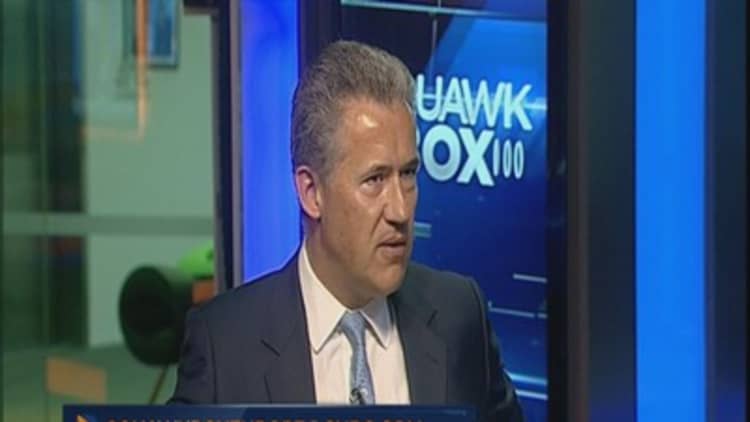
There's "no value left" in the "totally illiquid" high-yield market, one investor has told CNBC.
Speaking to Squawk Box Europe Friday, Beat Wittmann, a partner at Porta Advisors, said he would not consider pushing any of his clients into the junk bond space, citing a toxic combination of a lack of liquidity amid high levels of risk.
"There's no way you leave that market anymore once it's starting to crack up. And it always does," Wittmann said.
His comments come as investor Carl Icahn earlier this summer warned on getting involved high yield, saying the market was "extremely overheated."
High-yield refer to assets – sometimes known as "junk bonds" that generally have a yield higher than 5 percent, and are considered to be at a greater risk of default than their 'investment grade' counterparts.
"I would actively advise clients not to touch high yield. It's a totally illiquid market and i think there is no value left." Wittmann said.
However not all investors are wary of the sector.
Pimco's chief investment officer for global credit Mark Kiesel told CNBC's Fast Money Halftime Report earlier this week that the high-yield market is not at risk and that he didn't foresee a crisis anytime soon, but said the firm is avoiding lower-quality bonds in the sector.
"It has been popular because people are afraid of equities...and they were increasingly frustrated with the ever-low yield environment in the high grade market," Wittmann explained.
However, Whittman told CNBC Friday that the only way to get into the market is to be an early investor and an early leaver, he added.
Wittmann said he's plumped for equities over the past four years and has since forecast a great rotation out of cash and bonds into equities in his half-year outlook for 2015, ahead of much-anticipated interest rate hikes and a normalization of monetary policy in the U.S. and Europe.
"I suspect that investors in general will only rethink their relentless search for yield...and change their defensive stance toward equities if and when economic growth strengthens further, equities have moved higher (particularly in Europe, and fixed-income positions have produced absolute losses," Wittmann wrote in his outlook.



